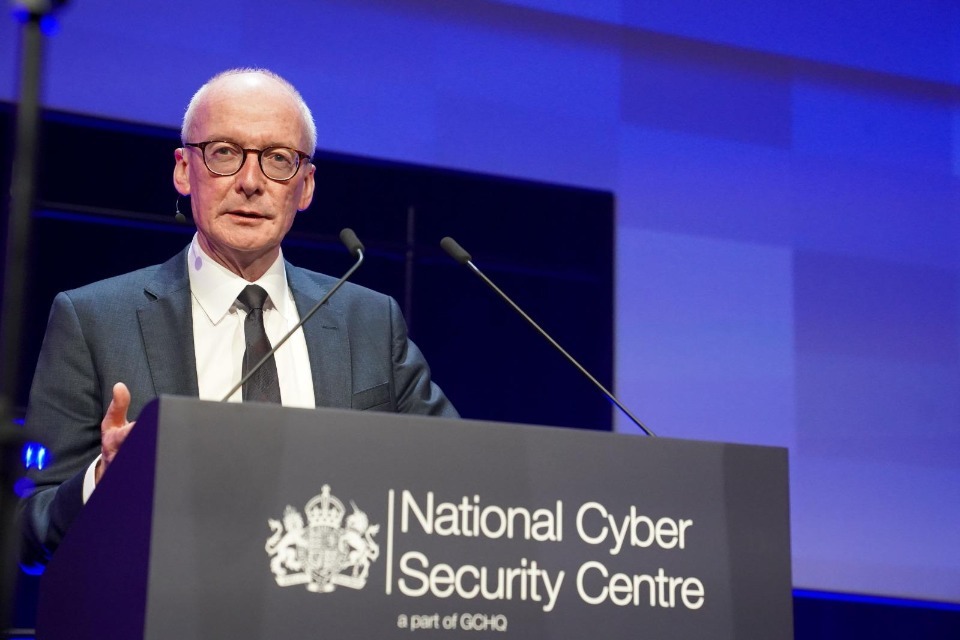
UK Backs Cyber Growth, Fights Serious Online Crime
The cyber sector will be a “prime target for economic growth” in the upcoming Industrial Strategy, as the government secures Britain’s future and delivers the Plan for Change.
- Cyber will be a “prime target for economic growth” in upcoming Industrial Strategy as government secures Britain’s future and delivers the Plan for Change.
- Boosting cyber sector will deliver double dividend of producing home grown jobs as well as protecting growth in other sectors.
- UK to invest £8 million in Ukrainian cyber defences, more than £1 million to protect Moldovan elections, and extra £7 million in Laboratory for AI Security Research.
The cyber sector will be a “prime target for economic growth” in the upcoming Industrial Strategy, as the government secures Britain’s future and delivers the Plan for Change.
Chancellor of the Duchy of Lancaster Pat McFadden will say that boosting the cyber sector will deliver the double dividend of producing home grown jobs as well as protecting growth in other sectors by improving cyber security.
Speaking at one of the country’s largest cyber security conferences on Wednesday, the minister will warn that the recent attacks on household retailers are “serious organised crime”.
But he will tell the audience of tech experts and business leaders gathered at CyberUK in Manchester that the digital world also presents a huge economic opportunity for the whole country – with the average cyber salary in North West England already climbing to £54,600.
He will announce that the government will turbo charge the sector in the upcoming Industrial Strategy, which will be a blueprint for kick-starting economic growth to put more money in working people’s pockets.
To ensure the government pulls every growth lever at its disposal, he will add the government is supporting an independent cyber growth report from experts at Imperial College and Bristol University, which will quickly deliver recommendations by the end of the summer.
Pat McFadden’s speech follows cyber attacks on M&S, the Co-op and Harrods, which he will address, saying:
Cyber attacks are not a game. Not a clever exercise. They are serious organised crime. The purpose is to damage and extort. The digital version of an old fashioned shake down. Either straight theft or a protection racket where your business will be safe as long as you pay the gangsters.
What we have seen over the past couple of weeks should serve as a wake-up call for businesses and organisations up and down the UK, as if we needed one, that cybersecurity is not a luxury but an absolute necessity.
Turning to seize the economic prize on offer, he will explain:
But there is enormous potential for cyber security to be a driving force in our economy – creating jobs, growth and opportunities for people. It’s already a sector on the up – with over 2,000 businesses across the UK.
We want the benefits of the cyber industry to reach into communities all across the country. And that is why cyber will be a prime target for economic growth in the upcoming Industrial Strategy, as the Government secures Britain’s future. It is going to be a significant commitment, a vote of confidence in your sector, and one that will tell the world: the UK plans to be a global player in cyber security for decades to come.
Cyber is already contributing to growth across the UK. The sector holds 67,000 jobs, up 6,600 in the last year, and revenues now top £13bn, up by 12% year-on-year.
Recognising the potential for public and private sector cooperation to deliver growth, the Chancellor of the Duchy of Lancaster will also deliver a progress update on the Laboratory for AI Security Research (LASR) he launched last November. In just months, it has funded 10 PhDs at the University of Oxford; 9 researchers at The Turing Institute and pioneering research through 8 leading UK universities including Queen’s University Belfast and Lancaster University.
He will rocket charge LASR with an additional £7 million of government funding and announce a new partnership with worldwide technology leader Cisco:
Cisco will work with LASR, and in particular the NCSC, to run challenges across the UK and build a demonstrator here in the North West to showcase how our scientists and entrepreneurs can work together to manage the risks, build the skills and grasp the opportunities of AI security. This is the first collaboration of its kind with LASR, and will be a trailblazer where others can follow to help LASR drive cutting-edge research into the impact of AI on national security.
Cementing the UK’s commitment to the security of its allies, he will announce the government is investing £1.1 million to give the Moldovan Government tools to protect the country’s upcoming Parliamentary Election, alongside additional funding for Ukraine:
Ukraine has put up an incredibly brave fight against Putin’s cyberwarfare, and we have vowed to stand shoulder to shoulder with Ukraine for as long as long as it takes to defend their sovereignty. And so we are going to invest £8 million in the Ukraine Cyber Programme over the next year to continue to counter the Kremlin’s cyber aggression.
The speech comes as the Department for Science, Innovation and Technology launches a suite of measures to bolster cyber protection for individuals and businesses across the UK.
Measures set to be unveiled by Minister Clark at CyberUK include:
- A new Software Security Code of Practice will be published today by the Department for Science, Innovation and Technology, to communicate essential steps every organisation developing or selling software should be taking to secure their products.
- This innovative guidance mirrors previous guidance issued by the government, called the AI Security Code of Practice, which will today be adopted by the European Telecommunications Standards Institute as baseline steps organisations in all countries should follow.
- To help inoculate businesses against cyberattacks, the government will also drive investment into CHERI, a ‘magic chip’ that builds advanced memory protections in microprocessors, blocking up to 70 per cent of common cyber attacks. £4.5 million will be spent helping firms bring these chips to market, find customers and break down barriers to adoption.
https://www.gov.uk/government/news/cyber-sector-is-target-for-growth-as-government-supports-businesses-against-serious-organised-cyber-crime

